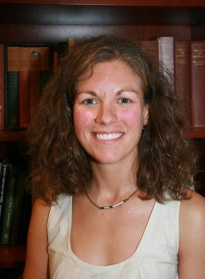
Checking in mid-term
It’s week nine here and this is my seventh post for the Center’s blog on teaching. We’ve reached the point where I’d like to take you out for coffee and find out how it’s going. I’d love to hear about the challenges you’re encountering mid-term. What’s working? What have you changed? What has surprised you? What (or who) are your frustrations? How’s your energy?
This is the most difficult time of the semester for me. I love the semester before it starts. I even love the first four or five weeks. And the end—it’s glorious! Cool weather, hot coffee, holiday cookies, and papers to grade with winter break around the bend. Pure delight. Mid-term, though. Boy. I’m drawing on energy reserves, my students are zonked, and it feels like a long time until Thanksgiving.
When Paul Myhre and I sketched topics for these blog posts months ago, I penciled in “mid-semester slump.” I saw it coming, and here it is. What’s it like? This semester it has manifested as doubt and worry: “Why did I choose this reading?” “Is there too much reading?” “Are the readings too difficult?” “Are students reading? (If so, why aren’t they talking??)” “How can I structure class differently to invite more of them in on the conversation?” It’s easy to get caught up in the questions.
 Years ago my good friend JoDavid gave me some advice: “Do.”
Years ago my good friend JoDavid gave me some advice: “Do.”
“For the moment,” he said, “Don’t worry about ‘be’ or ‘being,’ just ‘do.’” Just do what you can.
“Do” seems like a pretty good antidote to the mid-semester slump. In my last post I mentioned wanting to find a better way to evaluate my students’ work. I asked you for advice. I talked to colleagues about it. I thought about it on my commute. Finally, I talked to my spouse about it. (He’s a great problem-solver and an experienced teacher.)
“Now’s not the time to retool the major assignment’s grading,” he said.
Right. Excellent point.
“You’re going to end up alienating your students. This is a new course, isn’t it?”
“Yes.”
“You’re trying new things with these students . . . The readings and assignments are new, aren’t they?”
“All of them.”
“And were you satisfied with their work?”
“Yes – I was totally impressed. Thrilled even!”
“Then leave it alone for now, and make changes next time.”
Good advice. It’s really not broken.
It’s midterm. Instead of trying to fix everything right now, I’m going to set aside the questions and wait a bit. I’m going to do a little less (worrying). I suspect that one consequence of doing less might lead to being a little more (present). Meanwhile, I'm going to do some things that give me energy: run, enjoy fall walks with my family, Skype with a faraway friend.
Eventually I’ll want to return to the questions that teaching this new course raised for me. We can use this blog to keep track of them. If you’d like to share some of your questions in the comments below, they’ll be here for you later on.
This is the 7th post in this series by Molly Bassett this semester (Fall 2015).